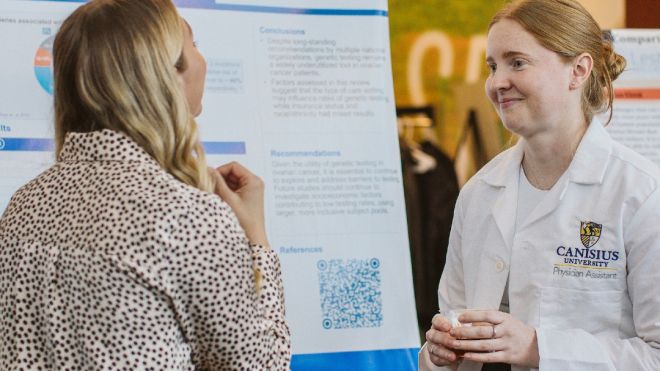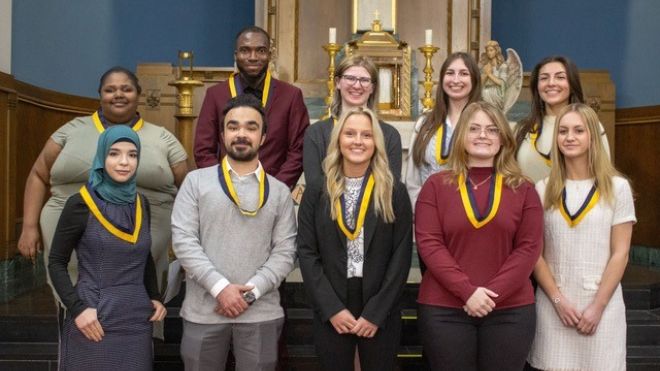The pesky mosquito may be your worst summer enemy but for evolutionary ecologist Katie S. Costanzo, PhD, it is her best friend. Costanzo studies the natural history of the blood-sucking insects to better understand the implications they have on human health. In her lab at Canisius, she is currently examining how climate influences traits in mosquitoes that can affect the epidemiology of diseases they carry. Costanzo’s research focuses on Aedes mosquitoes, which carry dengue disease.
“Mosquitoes spread such deadly illnesses as yellow fever, malaria and West Nile virus,” says Costanzo, who adds that the United States recently documented its first cases of dengue disease, acquired in Florida. “Interestingly, mosquitoes’ immune systems don’t succumb to the diseases they carry. If scientists can figure out why, they may learn how to treat or prevent humans from being affected.”
For clues to this mystery, Costanzo studied the impacts of viruses on the mosquitoes that carry them, during her postdoctoral work at the University of Illinois. She currently raises the insects, from larvae to adulthood, in a climate-controlled room in the Health Science Building. Costanzo enlists the help of undergraduate biology students, who learn how to collect, analyze and document data alongside her.
“I want to be more than a professor to my students. I want to mentor them in the same way I was mentored.”
Costanzo originally flirted with the idea of studying more “warm and fuzzy” creatures, as an undergraduate biology major at SUNY at Oswego. But an entomology professor took Costanzo under his wing and she has been bitten by mosquitoes ever since.
Costanzo holds a BS in biological sciences, with a concentration in zoology, from SUNY Oswego; an MS in biological sciences, with a concentration in conservation biology from Illinois State University, and a PhD in biology sciences from SUNY Buffalo.



